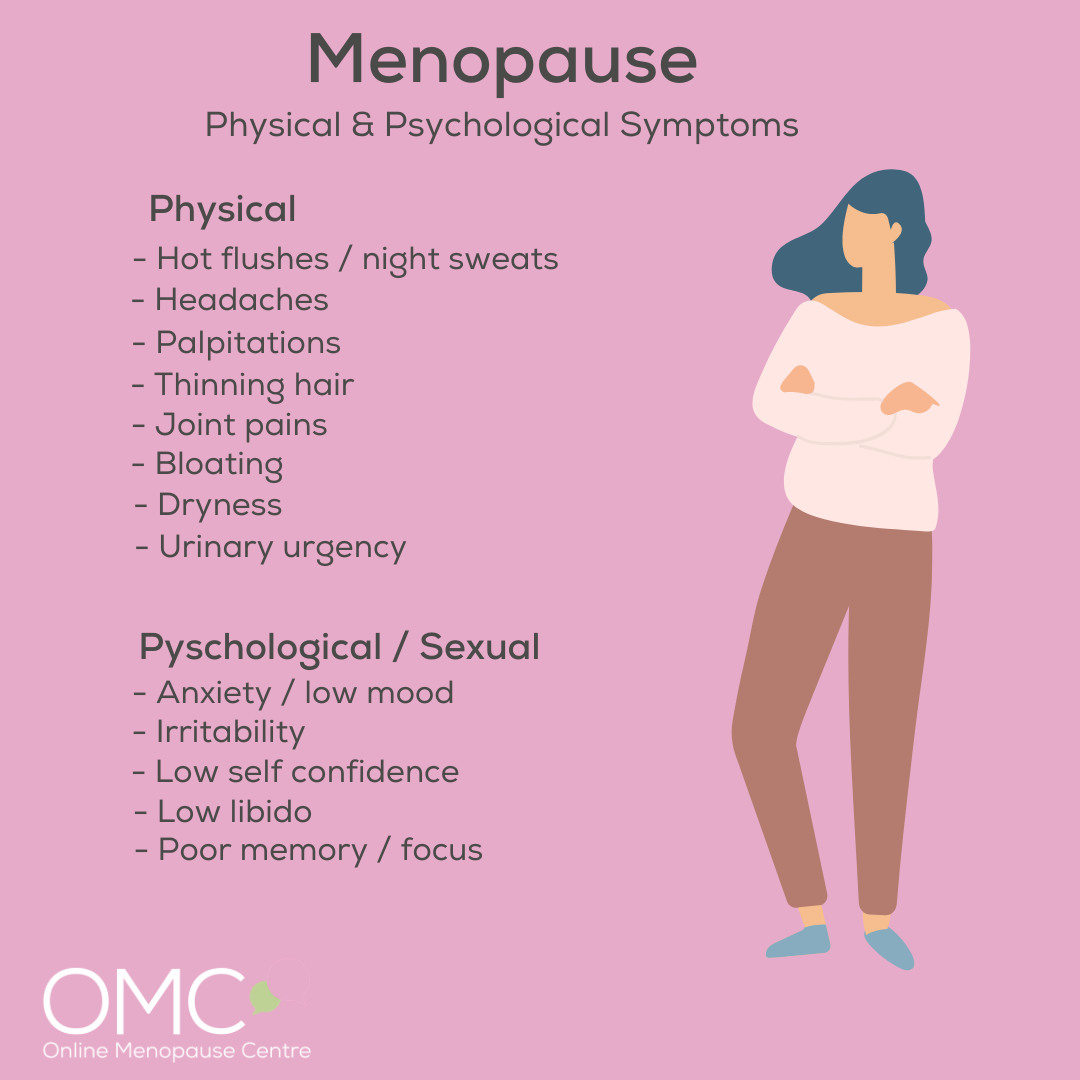Menopause
About the Menopause
Menopause (meno=menstruation, pause=stop) literally means the end of menstrual cycles. Menopause is diagnosed when a woman has not had a period for 12 months.
The average age of menopause in the UK is 51. However, there is a large variation in this age which is influenced by family history in that women generally reach the menopause around the same age as their mum and other first-degree female relatives and it is also influenced by their own medical and social history. For example, a woman who has had cancer treatment such as chemotherapy and/or radiotherapy may reach her menopause earlier than her close female relatives who have not been through this type of treatment.
Our lifestyle, including weight, diet/nutrition and exercise routines plus our stress levels can affect this too.
What are the symptoms of the menopause?
Estrogen deficiency:
Hot flushes, night sweats, reduced skin elasticity and dryness, itchy skin, reduced vision, dry/gritty eyes, vaginal dryness, low libido, urinary symptoms like recurrent cystitis, urge/stress incontinence, palpitations.
Progesterone deficiency
Anxiety, low mood, irritability, poor quality of sleep, increased inflammatory processes such as joint pain, achiness, bloating, breast tenderness, heavy and painful periods in women who still have regular or irregular periods.
Testosterone deficiency
Low libido, reduced muscle tone, difficulty retaining information, lack of clarity of thought, reduced self-confidence, reduced focus and concentration.
DHEA deficiency
DHEA or Dehydroepiandrosterone is an adrenal hormone which plays an important role is our energy levels and our sense of wellbeing. Low energy & libido are common symptoms of DHEA deficiency.
Visit our page on Hormones Deficiency Symptoms to find out more.


